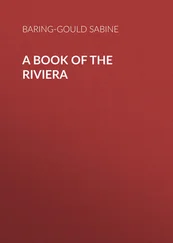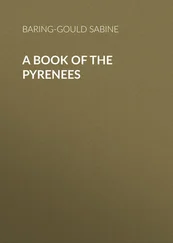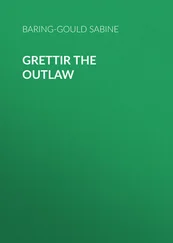Sabine Baring-Gould - Legends of the Patriarchs and Prophets
Здесь есть возможность читать онлайн «Sabine Baring-Gould - Legends of the Patriarchs and Prophets» — ознакомительный отрывок электронной книги совершенно бесплатно, а после прочтения отрывка купить полную версию. В некоторых случаях можно слушать аудио, скачать через торрент в формате fb2 и присутствует краткое содержание. Жанр: foreign_antique, foreign_prose, на английском языке. Описание произведения, (предисловие) а так же отзывы посетителей доступны на портале библиотеки ЛибКат.
- Название:Legends of the Patriarchs and Prophets
- Автор:
- Жанр:
- Год:неизвестен
- ISBN:нет данных
- Рейтинг книги:3 / 5. Голосов: 1
-
Избранное:Добавить в избранное
- Отзывы:
-
Ваша оценка:
- 60
- 1
- 2
- 3
- 4
- 5
Legends of the Patriarchs and Prophets: краткое содержание, описание и аннотация
Предлагаем к чтению аннотацию, описание, краткое содержание или предисловие (зависит от того, что написал сам автор книги «Legends of the Patriarchs and Prophets»). Если вы не нашли необходимую информацию о книге — напишите в комментариях, мы постараемся отыскать её.
Legends of the Patriarchs and Prophets — читать онлайн ознакомительный отрывок
Ниже представлен текст книги, разбитый по страницам. Система сохранения места последней прочитанной страницы, позволяет с удобством читать онлайн бесплатно книгу «Legends of the Patriarchs and Prophets», без необходимости каждый раз заново искать на чём Вы остановились. Поставьте закладку, и сможете в любой момент перейти на страницу, на которой закончили чтение.
Интервал:
Закладка:
“Have we not abundance of fruit of every color and flavor – only one is forbidden?”
“And if you knew why that one is forbidden, you would find little pleasure in tasting the others.”
“Do you know?”
“I do, and for that reason am I so cast down. This fruit alone gives eternal youth and health, whereas all the others give weakness, disease, old age and death, which is the cessation of life with all its joys.”
“Why, dearest serpent, did you never tell me this before? Whence know you these things?”
“An angel told me this as I lay under the forbidden tree.”
“I must also see him,” said Eve, leaving her tent and going towards the tree.
At this moment Eblis flew out of the serpent’s mouth, and stood in human form beneath the tree.
“Who art thou, wondrous being, the like of whom I have not seen before?” asked Eve.
“I am a man who have become an angel.”
“And how didst thou become an angel?”
“By eating of this fruit,” answered the tempter, – “this fruit which is denied us through the envy of God. I dared to break His command as I grew old and feeble, and my eyes waxed dim, my ears dull, and my teeth fell out, so that I could neither speak plainly nor enjoy my food; my hands shook, my feet tottered, my head was bent upon my breast, my back was bowed, and I became so hideous that all the beasts of the garden fled from me in fear. Then I sighed for death, and hoping to find it in the fruit of this tree, I ate, and lo! instantly I was young again; though a thousand years had elapsed since I was made, they had fled with all their traces, and I enjoy perpetual health and youth and beauty.”
“Do you speak the truth?” asked Eve.
“I swear by God who made me.”
Eve believed this oath, and broke a branch from the wheat-tree.
Before the Fall, wheat grew to a tree with leaves like emeralds. The ears were red as rubies and the grains white as snow, sweet as honey, and fragrant as musk. Eve ate one of the grains and found it more delicious than any thing she had hitherto tasted, so she gave a second grain to Adam. Adam resisted at first, according to some authorities for a whole hour, but an hour in Paradise was eighty years of our earthly reckoning. But when he saw that Eve remained well and cheerful, he yielded to her persuasions, and ate of the second grain which Eve had offered him daily, three times a day, during the hour of eighty years. Thereupon all Adam’s heaven-given raiment fell from him, his crown slipped off his head, his rings dropped from his fingers, his silken garments glided like water from his shoulders, and he and Eve were naked and unadorned, and their fallen garments reproached them with the words, “Great is your misfortune; long will be your sorrows; we were created to adorn those who serve God; farewell till the resurrection!”
The throne recoiled from them and exclaimed, “Depart from me, ye disobedient ones!” The horse Meimun, which Adam sought to mount, plunged and refused to allow him to touch it, saying, “How hast thou kept God’s covenant?” All the inhabitants of Paradise turned their backs on the pair, and prayed God to remove the man and the woman from the midst of them.
God himself addressed Adam with a voice of thunder, saying, “Did not I forbid thee to touch of this fruit, and caution thee against the subtlety of thy foe, Eblis?” Adam and Eve tried to fly these reproaches, but the branches of the tree Talh caught Adam, and Eve entangled herself in her long hair.
“From the wrath of God there is no escape,” cried a voice from the tree Talh; “obey the commandment of God.”
“Depart from Paradise,” then spake God, “thou Adam, thy wife, and the animals which led you into sin. The earth shall be your abode; in the sweat of thy brow shalt thou find food; the produce of earth shall cause envy and contention; Eve (Hava) shall be afflicted with a variety of strange affections, and shall bring forth offspring in pain. The peacock shall lose its melodious voice, and the serpent its feet; dark and noisome shall be the den in which the serpent shall dwell, dust shall be its meat, and its destruction shall be a meritorious work. Eblis shall be cast into the torments of hell.”
Our parents were then driven out of Paradise, and one leaf alone was given to each, wherewith to hide their nakedness. Adam was expelled through the gate of Repentance, that he might know that through it alone could Paradise be regained; Eve was banished through the gate of grace; the peacock and the serpent through that of Wrath, and Eblis through the gate of Damnation. Adam fell into the island Serendib (Ceylon), Eve at Jedda, the Serpent into the desert of Sahara, the Peacock into Persia, and Eblis into the river Eila. 70 70 Weil, pp. 19-28.
Tabari says that when the forbidden wheat had entered the belly of Adam and Eve, all the skin came off, except from the ends of the fingers. Now this skin had been pink and horny, so that they had been invulnerable in Paradise, and they were left naked and with a tender skin which could easily be lacerated; but as often as Adam and Eve looked on their fingernails, they remembered what skin they had worn in Eden. 71 71 Tabari, i. p. 80.
Tabari also says that four trees pitying the shame of Adam and Eve, the Peacock, and the Serpent, in being driven naked out of Paradise, bowed their branches and gave each a leaf.
Certain Rabbis say that Adam ate only on compulsion, that he refused, but Eve “took of the tree,” – that is, broke a branch and “gave it him,” with the stick.
According to the Talmudic book, Emek Hammelech (f. 23, col. 3), Eve, on eating the fruit, felt in herself the poison of Jezer hara, or Original sin, and resolved that Adam should not be without it also; she made him eat and then forced the fruit on the animals, that they might all, without exception, fall under the same condemnation, and become subject to death. But the bird Chol – that is, the Phœnix – would not be deceived, but flew away and would not eat. And now the Phœnix, says the Rabbi Joden after the Rabbi Simeon, lives a thousand years, then shrivels up till it is the size of an egg, and then from himself he emerges young and beautiful again.
We have seen what are the Asiatic myths relating to Adam and Eve; let us now turn to Africa. In Egypt it was related that Osiris lived with Isis his sister and wife in Nysa, or Paradise, which was situated in Arabia. This Paradise was an island, surrounded by the stream Triton, but it was also a steep mountain that could only be reached on one side. It was adorned with beautiful flowers and trees laden with pleasant fruits, watered by sweet streams, and in it dwelt the deathless ones.
There Osiris found the vine, and Isis the wheat, to become the food and drink of men. There they built a golden temple, and lived in supreme happiness till the desire came on Osiris to discover the water of Immortality, in seeking which he left Nysa, and was in the end slain by Typhon. 72 72 Diod. Sicul., 14 et seq.
The following is a very curious negro tradition, taken down by Dr. Tutschek from a native in Tumale, near the centre of Africa.
Til (God) made men and bade them live together in peace and happiness, labor five days, and keep the sixth as a festival. They were forbidden to hurt the beasts or reptiles. They themselves were deathless, but the animals suffered death. The frog was accursed by God, because when He was making the animals it hopped over his foot. Then God ordered the men to build mountains: they did so, but they soon forgot God’s commands, killed the beasts and quarrelled with one another. Wherefore Til (God) sent fire and destroyed them, but saved one of the race, named Musikdegen, alive. Then Til began to re-create beings. He stood before a wood and called, Ombo Abnatum Dgu! and there came out a gazelle and licked His feet. So He said, stand up, Gazelle! and when it stood up, its beast-form disappeared, and it was a beautiful maiden, and He called her Mariam. He blessed her, and she bore four children, a white pair and a black pair. When they were grown up, God ordered them to marry, the white together and the black together. In Dai, the story goes that Til cut out both Mariam’s knee-caps, and of each He made a pair of children. Those which were white He sent north; those which were black He gave possession of the land where they were born.
Читать дальшеИнтервал:
Закладка:
Похожие книги на «Legends of the Patriarchs and Prophets»
Представляем Вашему вниманию похожие книги на «Legends of the Patriarchs and Prophets» списком для выбора. Мы отобрали схожую по названию и смыслу литературу в надежде предоставить читателям больше вариантов отыскать новые, интересные, ещё непрочитанные произведения.
Обсуждение, отзывы о книге «Legends of the Patriarchs and Prophets» и просто собственные мнения читателей. Оставьте ваши комментарии, напишите, что Вы думаете о произведении, его смысле или главных героях. Укажите что конкретно понравилось, а что нет, и почему Вы так считаете.












